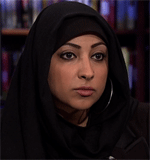Published on Thu, 2014-09-18 14:49
The United Nations General Assembly on 10 September adopted the Sustainable Development Goals (SDGs) outcome document. The resolution of the 68th session of the General Assembly was in line with developing countries' request that the report of the Open Working Group (OWG) on SDGs shall be the main basis for integrating sustainable development goals into the post-2015 development agenda. Meanwhile, the General Assembly recognises that other inputs will also be considered in the intergovernmental negotiation process at the sixty-ninth session of the General Assembly that was convened on 16 September. |
Published on Thu, 2014-09-18 10:21
Emerging social problems have shown that the characteristics of poverty in Thai society are becoming more complex, with differing forms of disparity and inequality. This basic understanding allows seeing the need to build a universal social welfare and protection system in Thailand because the current direction of development has marginalized the majority of the people. This situation has caused these people to become invisible. For example, migrant workers in Bangkok cannot access certain welfare services because their house registration is in the provinces. Therefore children’s problems cannot be resolved in isolation without linking them to other social issues. At the same time, society faces various increasing social, economic and natural disaster risks. There are more exploitative practices in the employment system. This is the situation for the majority of parents and guardians of young children for whom civil society is advocating a basic early childhood welfare system. |
Published on Wed, 2014-09-17 22:08
Human rights defender Ms Maryam Al-Khawaja will face trial on 1 October 2014 before the High Criminal Court for allegedly "assaulting a police officer". Maryam Al-Khawaja, is the acting president of the Bahrain Centre for Human Rights (BCHR) and the co-director of the Gulf Centre for Human Rights (GCHR). |
Published on Mon, 2014-09-15 18:03
Serious developments regarding the violations of rights in Egypt are becoming more evident, as the Ministry of Social Solidarity proposes a new law, which would constitute a dangerous escalation in the framework of systematic targeting of civil society activists and the increasing restrictions imposed upon them. On 26 June 2014, the Egyptian ministry in charge of regulating civil society organization proposed a new draft law, causing shockwaves among civil society organizations (CSOs) in the country. For six months, they had carried out negotiations with former Social Solidarity Minister Dr. Ahmed el-Boraei, which led to a proposed law to be presented to forthcoming parliament soon after the elections. |
Published on Thu, 2014-09-11 20:19
The UN General Assembly has passed a landmark resolution that mandates the UN to create a “multilateral legal framework for sovereign debt restructuring”. Promoted by the G77 countries and triggered by the aggressive vulture funds lawsuits against Argentina, this resolution could be a game changer for the way future debt crises are managed. First and foremost, it has shifted the forum for political debate away from the International Monetary Fund (IMF) towards the UN. However, shamefully the EU’s vote was split over this crucial decision. |








